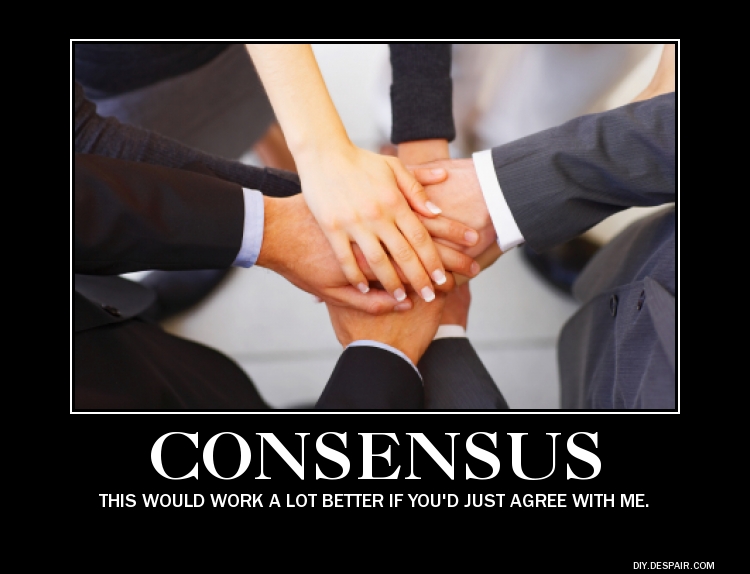Is consensus over-rated?
Consensus is great, right? Building consensus leads to better ideas, work efficiencies, and higher morale. Consensus is so important, there are courses taught on the subject and consultants earn big bucks when they facilitate consensus-building sessions for companies across the globe.

When there’s consensus, everyone is happy with the solution or action. Everyone buys in when they have contributed, which leads to higher productivity. Plus, there is a sense of camaraderie as people work together on the shared goal.
But there is a downside to consensus.

The most significant downside to consensus-building is the time it takes. It takes time in meetings, whether one-on-one or with groups, to build consensus. But, even beyond that, keeping the consensus as solutions are implemented is time-consuming. I wonder if too much time is spent here on reaching consensus.
Who says we have to be 100% happy with every solution we have to implement?
Can’t we implement solutions even when they are not our idea or preference? Is the expectation of joy for every minute of our day too high?
When too much time is spent gaining agreement for too many solutions, consensus can prevent accountability.
For example, let’s say two technical staff members explore an idea for a new product your company could offer. They do the relevant market research, calculate forecasts, and build the prototype that gains approval of their director to proceed. If the product fails or succeeds, the buck stops with the two staff members. Accountability doesn’t mean they get fired if it doesn’t work. It means they need to explain where the research and forecasts erred. They don’t get to say, “Well, it failed but Bob approved it!” On the other hand, if the product is a wild success, accountability means they get rewarded for success.
Consensus is not needed for everything it is used for all the time. Don’t use it to get out of making decisions that are your responsibility. Instead, get ideas and input from others, then make the decision. Also, resist the temptation to insist on consensus when you are invited to give input and ideas. Feel free to share then let our colleague decide.
When consensus leads to lack of accountability and to procrastination, the good part of it is lost.